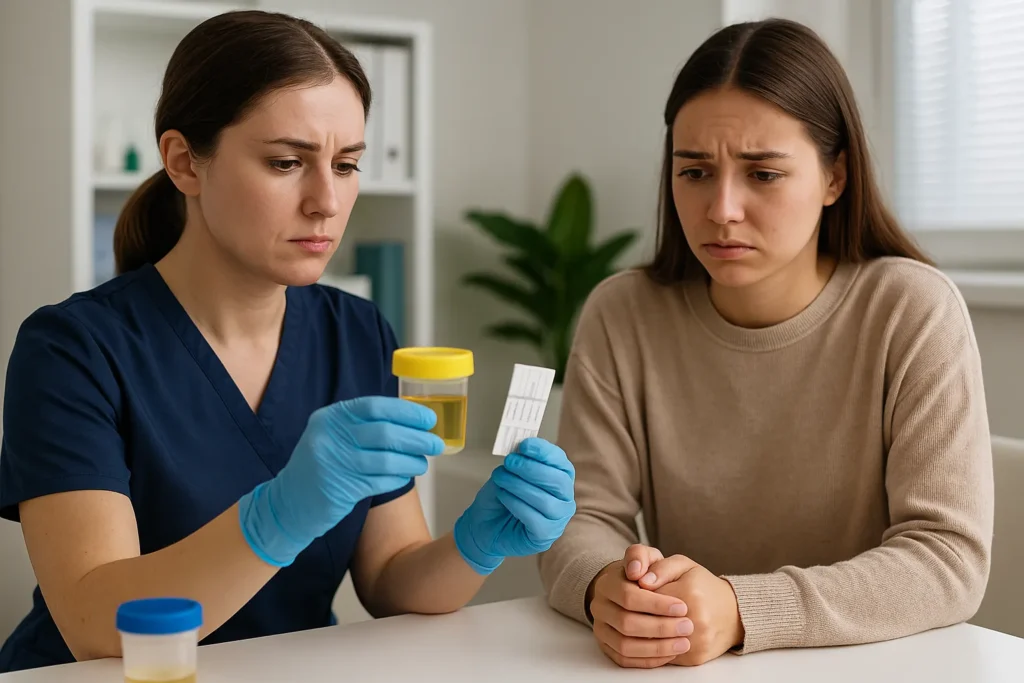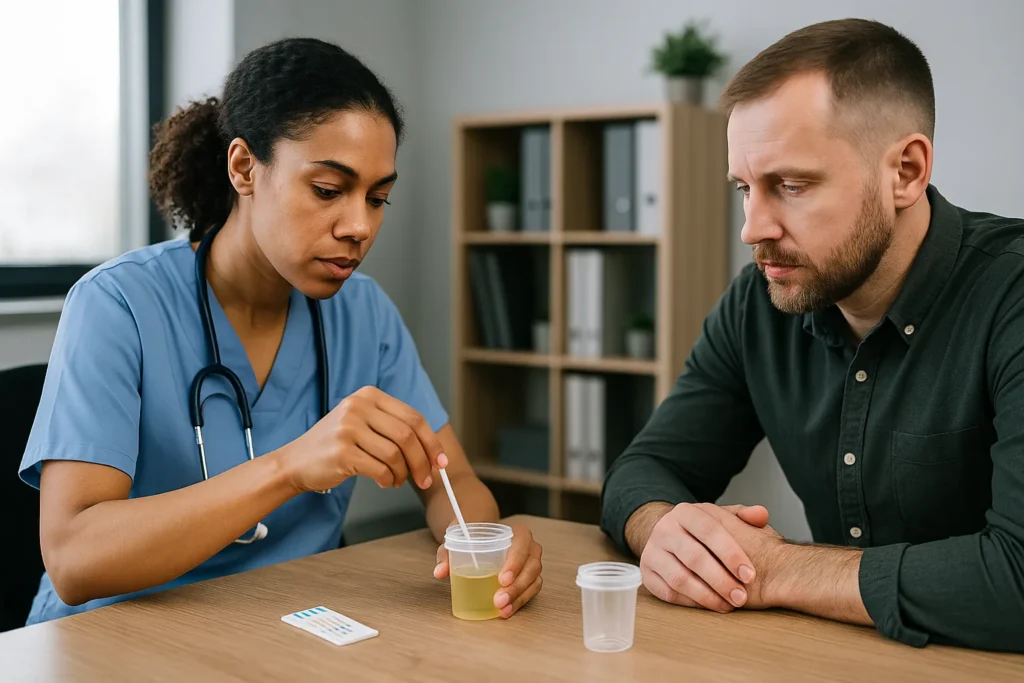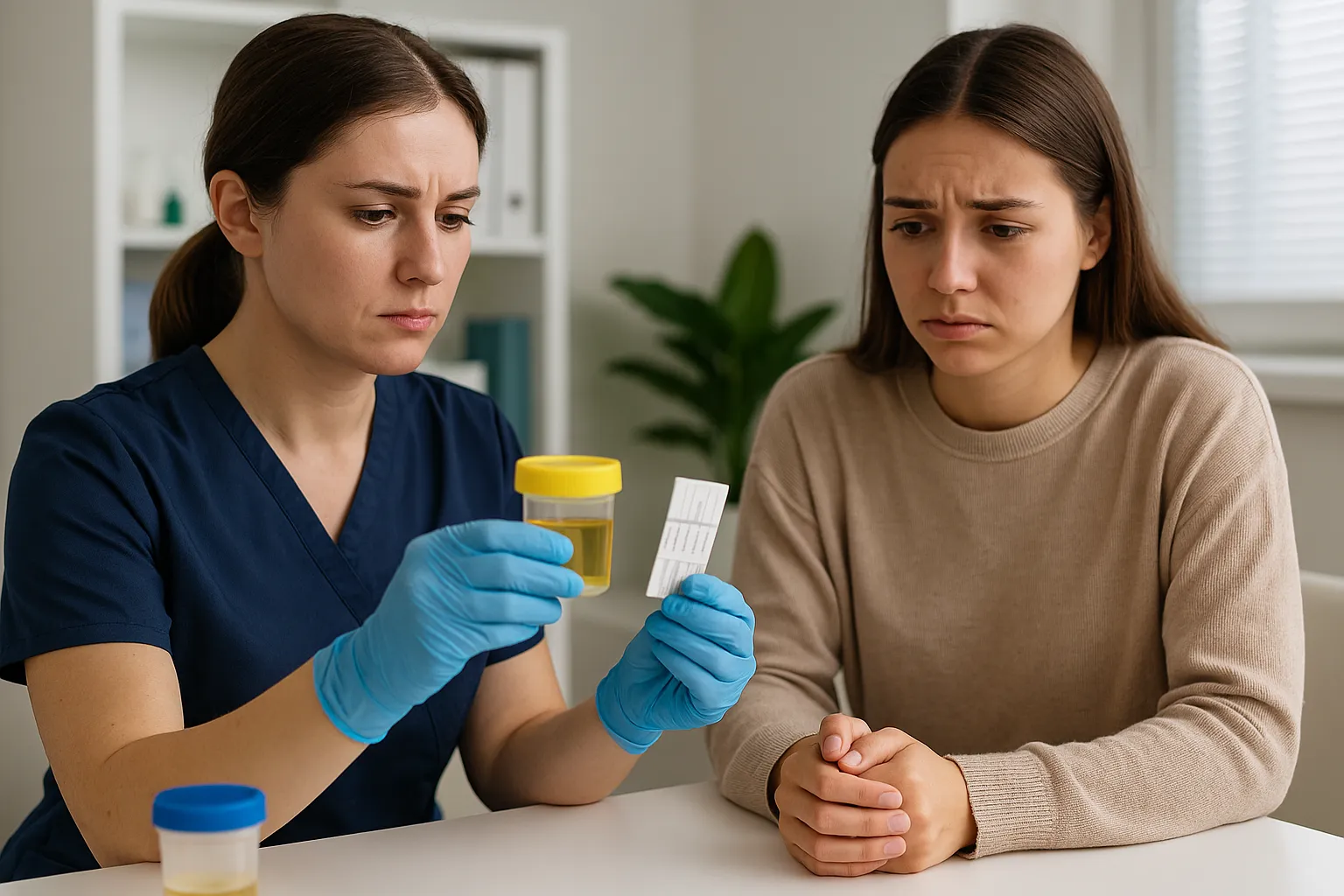
A knock from Child Protective Services can turn your world upside down in an instant. When a case involves suspected substance use, CPS often orders drug testing—leaving parents feeling overwhelmed and unsure of what comes next. Understanding CPS drug testing procedures in Texas is key to staying calm and making informed choices. Knowing what to expect, what your rights are, and how the process works behind the scenes can help you avoid costly mistakes. It’s not just about the test result—it’s about how you respond, protect your family, and navigate the system with clarity and confidence.
Why CPS Orders Drug Testing
CPS steps in when someone makes a report that a child may be abused, neglected, or living in dangerous conditions. Reports often come from schools, hospitals, neighbors, or law enforcement.
Drug use becomes a factor when the report includes claims like:
- A parent used drugs around the child
- Drugs or paraphernalia were found in the home
- A newborn tested positive at birth
- The child showed signs of exposure or neglect
Once CPS opens a case, the investigator may ask for a drug test if there’s reasonable cause to believe drug use threatens the child’s safety. They do not need a positive test to start a case. They use the test to confirm or rule out part of the concern.
What Types of Drug Tests CPS Uses
CPS uses several testing methods, depending on the situation and the age of the child.
Urine Testing
This is the most common test. It detects recent drug use, usually within a few days. CPS may request a urine test during the initial investigation and later during case monitoring.
Hair Follicle Testing
This test shows a longer history of drug use, sometimes up to 90 days. CPS often uses it when they suspect ongoing or repeated drug use. Hair tests are harder to fake or avoid and carry more legal weight.
Saliva Testing
Less common but sometimes used when fast results are needed. It detects drug use within the last 24 to 48 hours. It may be used during surprise checks or when other tests are unavailable.
Meconium and Umbilical Testing (for newborns)
Hospitals can collect a baby’s first bowel movement or cord tissue to test for prenatal exposure to drugs. If results come back positive, CPS may open a case immediately.
Who Pays for the CPS Drug Test?
In most cases, CPS pays for the first drug test. If the parent disagrees with the result, they can request a retest at their own expense. Courts can also order drug testing and may shift the cost to the parent, depending on the case.
If a parent is already involved in a legal case, the judge may require random testing through court-approved services. These costs can also fall on the parent.

What Happens If You Refuse a Drug Test?
Refusing a CPS drug test can hurt your case. It doesn’t count as a failed test, but CPS will document the refusal and may treat it as a red flag. In court, refusal can be used to show you didn’t cooperate with efforts to confirm child safety.
That doesn’t mean you have to say yes on the spot. You can ask questions and request legal advice. But if CPS believes the child is in immediate danger, they can ask a judge for an emergency order or removal.
What Happens If You Fail a CPS Drug Test?
A failed test doesn’t automatically lead to child removal, but it raises the stakes. CPS will consider:
- The type of drug
- How often you’ve tested positive
- Whether the child was exposed
- Whether you admit the use
- Whether you’re willing to get help
CPS often offers services before they take drastic steps. These can include substance abuse classes, parenting programs, counseling, and supervised visitation. If the parent shows progress and follows the case plan, the agency may allow the child to stay or return home.
If there are repeated failures, or if the parent refuses help, CPS may recommend removal or file to terminate parental rights.
Can CPS Drug Test Without a Court Order?
During the investigation phase, CPS may ask for a drug test without going to court. You can say no, but that decision carries consequences. If the case escalates or goes to court, the judge can order mandatory testing.
Once a case enters the legal system, the court has more power. Judges can require scheduled or random tests and use the results to decide custody or service plans.
What Happens After a Positive Test?
After a parent tests positive, CPS reviews the results with a supervisor and builds a plan based on the full case picture. If the child is not in immediate danger, they may allow the child to remain at home under supervision. They may also add conditions, like frequent testing, counseling, or restricted contact.
If CPS removes the child, they must provide a service plan that gives the parent a path to reunification. This often includes clean drug tests, regular visitation, and program completion. Parents who follow through may regain custody.

How CPS Protects Children During the Process
CPS follows strict policies when handling drug-related investigations. Caseworkers receive training on how to spot signs of drug use, speak with children safely, and build a case based on facts, not assumptions.
They also work with substance abuse professionals to assess the parent’s condition. In some cases, CPS connects families with in-home services instead of removing the child.
Still, the system isn’t perfect. False positives, miscommunication, or bias can affect how the case moves forward. That’s why it helps to document everything and speak with an attorney if you face investigation.
Common Drugs Tested in CPS Cases
CPS panels test for a wide range of substances, including:
- Marijuana
- Cocaine
- Methamphetamine
- Heroin and other opioids
- Alcohol
- Benzodiazepines
- Prescription medication (if misused)
Texas follows a zero-tolerance approach when a child’s safety is in question. Even legal substances, like alcohol or medical marijuana, can trigger problems if used in ways that affect parenting.
Tips for Parents Going Through CPS Drug Testing
Facing a CPS case is stressful, but your actions can influence the outcome. If you’re under investigation, here’s what can help:
- Show up for every test even if you fear the result. Missing one looks worse than a failed test.
- Be honest about past use. It builds credibility.
- Follow the service plan even if you disagree with parts of it.
- Keep your home safe and clean.
- Avoid any new charges or arrests.
- Stay consistent with visitation if allowed.
- Ask questions and stay informed. Don’t guess what CPS wants—ask for clarity.
- Get legal advice. A lawyer can protect your rights and help guide decisions.
Final Thought
Understanding CPS drug testing procedures in Texas is essential when navigating a child welfare investigation. While the process is serious, it doesn’t automatically lead to child removal. CPS aims to protect children, not to punish parents. If you’re cooperative, seek support, and follow court instructions, you can work toward a positive outcome. Knowing your rights, staying calm, and focusing on creating a safe and stable home are key steps in moving forward. With the right approach, families can overcome these challenges and begin to rebuild trust.

Ebook
Other Related Articles:
- Conquer CPS Drug Testing
- Texas CPS Drug Testing: Protocols, Rights, and Resources Demystified
- Ensuring Child Safety: CPS Drug Testing in Texas
- From Suspicion to Solution: CPS Drug Testing at Home
- The Legal Landscape: CPS and Drug Testing in Texas Explained
- Legal Insights: CPS Drug Tests and Your Rights in Texas
- CPS Drug Testing in Texas: Know Your Rights and Legal Protocols
- The Significance of CPS Drug Test Results
- Behind the Scenes: Exploring CPS Drug Testing in Texas Law
- CPS Drug Testing at Home in Texas: Legal Procedures and Implications
- Types of Drug Tests Used by CPS in Texas
- What are your lawyer’s responsibilities during your CPS case?
- Want to help your CPS attorney? Be honest and ask questions
Frequently Asked Questions
Texas probation offices often use urine drug tests to screen individuals. Urine tests are cost-effective and provide relatively accurate results for recent drug use
In Texas, the Child Protective Services (CPS) law, also known as the Texas Family Code, outlines the legal framework for child protection and welfare. It governs the responsibilities of CPS, the rights of parents, and the procedures involved in child abuse or neglect cases.
Texas schools primarily conduct drug tests for students involved in extracurricular activities or those who hold specific permits, such as parking permits. These tests usually screen for common substances, including marijuana, opioids, amphetamines, and alcohol.
Failing a drug test in Texas can have various consequences depending on the context. For example, if you fail a workplace drug test, you may face disciplinary actions, including termination. In legal cases, such as probation or CPS investigations, failing a drug test could impact custody arrangements or lead to legal penalties.

 If you want to know more about what you can do,
If you want to know more about what you can do, 

